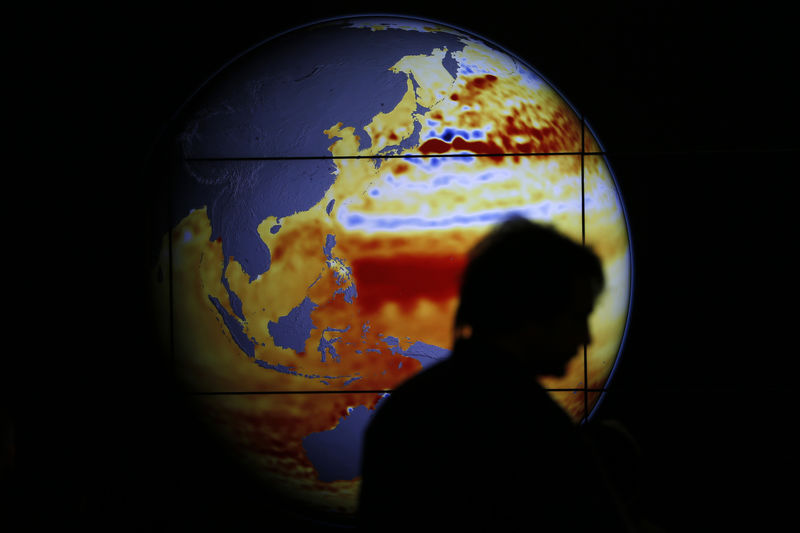One extra child means perhaps 90 years of CO2 emissions, which at worst would remain at around today’s level of about 15 tons per person annually
COPENHAGEN – Across all cultures, raising a child is considered one of the most rewarding things a person can do. Yet a chorus of campaigners, scientists, and journalists suggest that everyone should think twice before procreating.
The United States’ public radio broadcaster NPR asks, “Should We Be Having Kids in the Age of Climate Change?” The Nation magazine wants to know, “How Do You Decide to Have a Baby When Climate Change Is Remaking Life on Earth?” The Guardian counsels readers: “Want to fight climate change? Have fewer children.” And the New York Times warns that having a child is the worst environmental action anyone could take.
By having two children, a hypothetical American woman who switches to a fuel-efficient car, drives less, recycles, installs efficient light bulbs and energy-saving windows, would do as much damage as “nearly 40 times what she had saved by those actions.” Last year, the US fertility rate hit a historic low.
We have been here before. In the 1970s, fear of environmental degradation and societal collapse drove some well-intentioned people to remain childless. The scientists and opinion leaders comprising the Club of Rome famously (and erroneously) predicted humanity’s end, forecasting that the world would run out of aluminum, copper, gold, lead, mercury, molybdenum, natural gas, oil, silver, tin, tungsten, and zinc. They advocated stopping economic growth, cutting consumption, and making sure people had fewer children.
Global Warming Crisis – A Race to Win

Some people in rich countries followed this advice. In 1972, US activists founded the National Organization for Non-Parents, promoting childlessness as “politically responsible.” A research paper from 1976 noted that fear of overpopulation had become “one of the reasons for remaining child-free.” One wonders whether any of the scientists felt remorse, or how many would-be parents felt regret, when the dire predictions turned out to be fear mongering.
Just like the Club of Rome, today’s climate scientists make the case against having children by pointing to the environmental burden caused by adding to the planet’s population. Most analyses use the approach set out in a 2009 paper by Oregon State University’s Paul A. Murtaugh and Michael G. Schlax, which holds each parent responsible for half of every child’s projected lifetime CO2 emissions. But it doesn’t stop there: You are held responsible not just for half of your child’s emissions, but also for a quarter of your grandchildren’s emissions, an eighth of your great-grandchildren’s emissions, and so on. In their central scenario, Murtaugh and Schlax expect that in the US every child will account for more than 20 tons of CO2 every year.
This forecast is problematic on several counts. First, that emission count is already 20 percent too high compared to today’s reality. Moreover, the US expects that personal emissions will drop a further 0.5 percent every year before 2050.
Second, the approach of blaming parents for all emissions of all progeny into the future is just ludicrous. By this measure, our hunter-gatherer ancestors were far worse for the planet than any jet-setting billionaire today. Clearly, your infant daughter’s decision in two or three decades whether to have children is her own responsibility and choice to make.
The truth is that one extra child means perhaps 90 years of CO2 emissions (caused largely by a lifetime of consuming products and utilities that account for such emissions), which at worst would remain at around today’s level of about 15 tons per person annually. That adds up to 1,350 tons over this century.
If you are really worried about those extra emissions, you could offset the damage caused by your child’s lifetime emissions for about $23,400 (€19,600) in the European Union’s emissions trading system. If you buy the certificates, you will force energy companies and others to emit exactly 1,350 tons less this year.
To put this in context, the US Department of Agriculture estimates the cost of raising a middle-class US child to the age of 17 to be $233,610. Clearly, the value to parents of having a child is worth more—likely much more—than $233,610. Cutting CO2 emissions by not having a child has a value no higher than $23,400. In crude monetary terms, the “benefits” of children far outweigh their climate “costs.”
And yet scaring off potential parents continues. The New York Times interviewed one young woman who said, “I know that humans are hard-wired to procreate, but my instinct now is to shield my children from the horrors of the future by not bringing them to the world.”
This rhetoric is as misguided as the Club of Rome’s predictions. A global survey of all scientific estimates of the costs of climate change damage, undertaken by the United Nations climate panel, found that global warming right now has about a zero net cost. (The most pessimistic study identifies a cost of 0.3 percent of global GDP, and the most optimistic a net benefit of 2.3 percent.) If we do nothing, future damages are expected to total two percent of GDP in a half-century and three to four percent early next century.
This means that climate change certainly is a challenge we must confront, and there is a compelling case for additional spending on renewable energy research and development. But scaring people from having children denies potential parents what is often seen as one of the best things life has to offer, in order to achieve less good than what $23,400 could buy. Doing little environmental good at such a huge human cost is a bad deal for everyone.
Lomborg is Director of the Copenhagen Consensus Center and a visiting professor at the Copenhagen Business School.
© 2018, Project Syndicate
www.project-syndicate.org






































